Indigenous Governance Database
Justice Systems
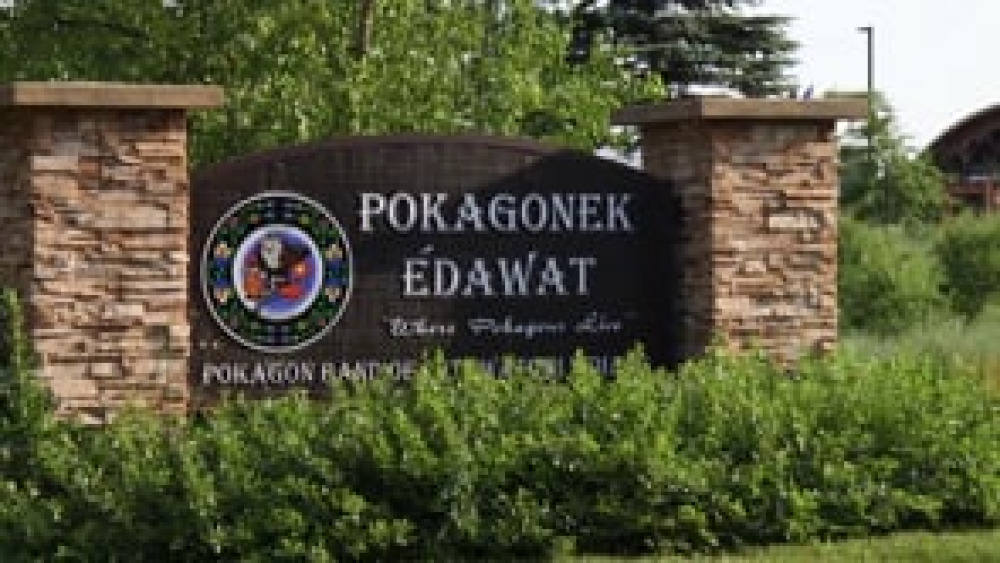
Warrior Lawyers: Defenders of Sacred Justice (Trailer)
'Warrior Lawyers: Defenders of Sacred Justice' is a one-hour PBS documentary that is particularly timely and relevant given our country's current reckoning with racial inequity and systemic racism. The program focuses on the stories of Native American Lawyers, Tribal Judges and their colleagues who…
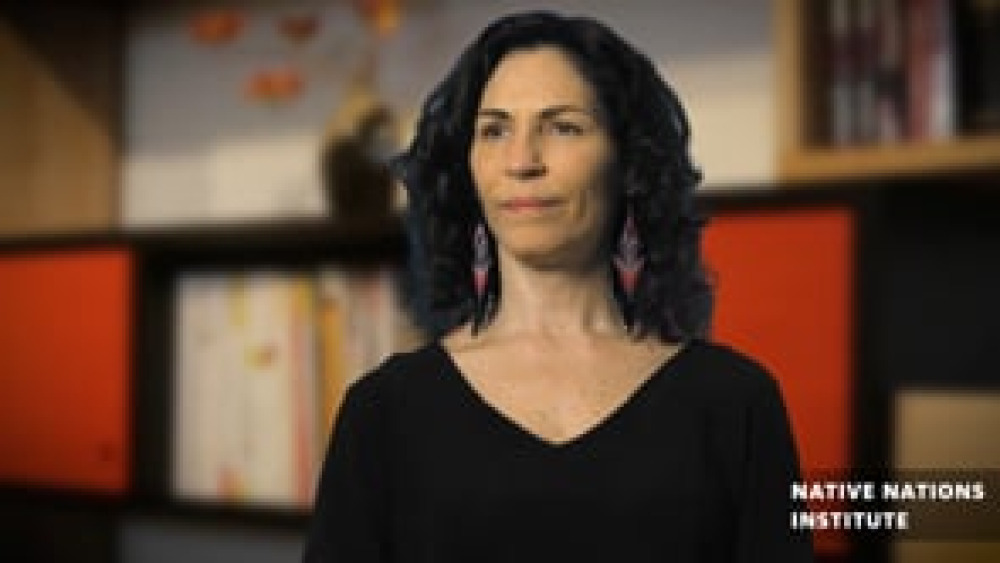
Shannon Keller O'Loughlin: Native Leadership and Lasting Commitment
Shannon Keller O'Loughlin, Choctaw Nation of Oklahoma, is an attorney and the Executive Director of the Association on American Indian Affairs. Shannon was also the former Chief of Staff, National Indian Gaming Commission, a member of President Obama’s NAGPRA Review Committee, and a Cultural…
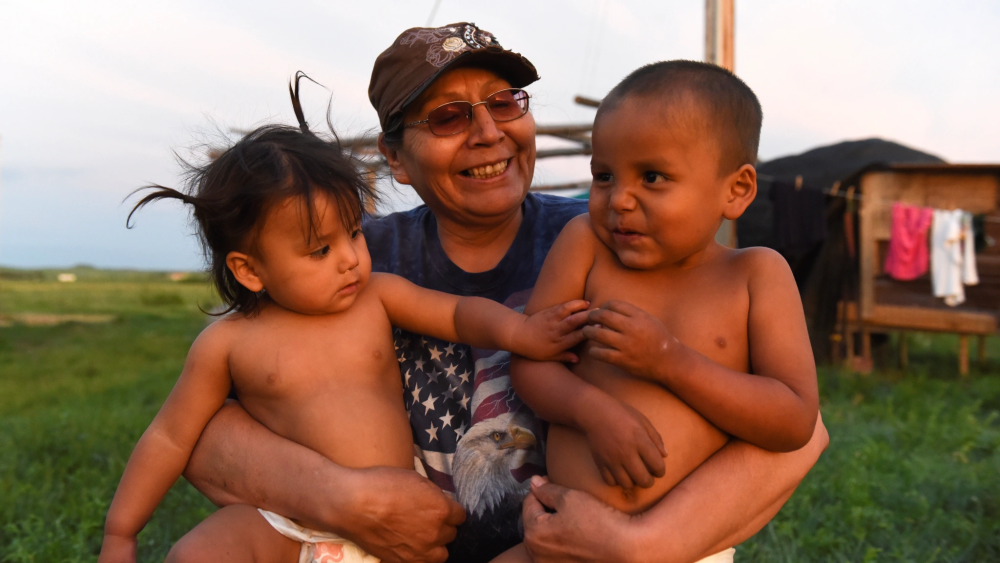
How does measuring poverty and welfare affect American Indian children?
For one group of children in particular, American Indians and Alaska Natives, exceedingly high poverty rates have had profound impacts on community wellbeing and long-term cohesiveness. Given the best available data, from the U.S. Census data, child poverty rates among American Indians and Alaska…
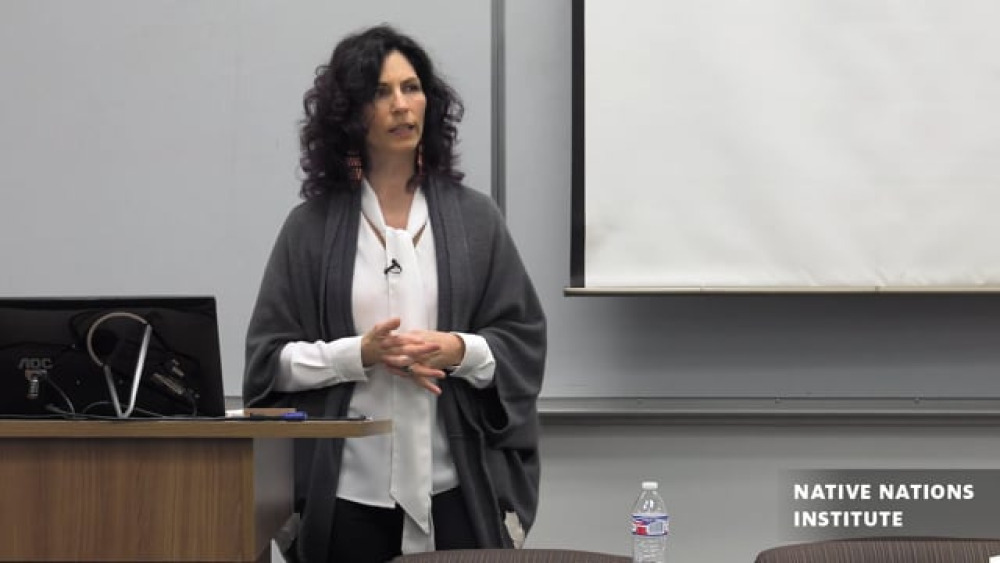
Shannon Keller O'Loughlin: Native Women in Governance
Shannon Keller O'Loughlin, Choctaw Nation of Oklahoma, is an attorney and the Executive Director of the Association on American Indian Affairs. Shannon was also the former Chief of Staff, National Indian Gaming Commission, a member of President Obama’s NAGPRA Review Committee, and a Cultural…

Theresa Arevgaq John: Alaska indigenous governance through traditions and cultural values
Theresa Arevgaq John is a well known Y’upik cultural advocate and Associate Professor in Indigenous Studies and the Department of Cross-Cultural Studies at the University of Alaska Fairbanks and has intimate knowledge about cultural practices within Indigenous governance. She advocates…
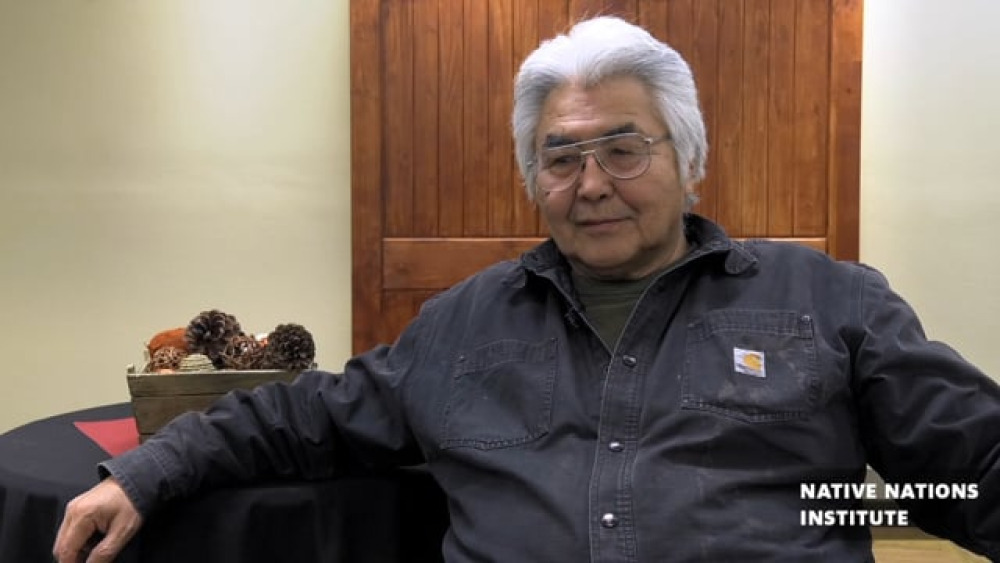
Wilson Justin: Leadership with Cultural Knowledge and Perseverance
Wilson Justin is a cultural ambassador for Cheesh’na Tribal council and serves as a Vice Chair Board of Directors for Mt. Sanford Tribal Consortium. He relays his expertise and perspective on the intricacies of Indigenous governance in Alaska through adapting cultural traditions, creating a…
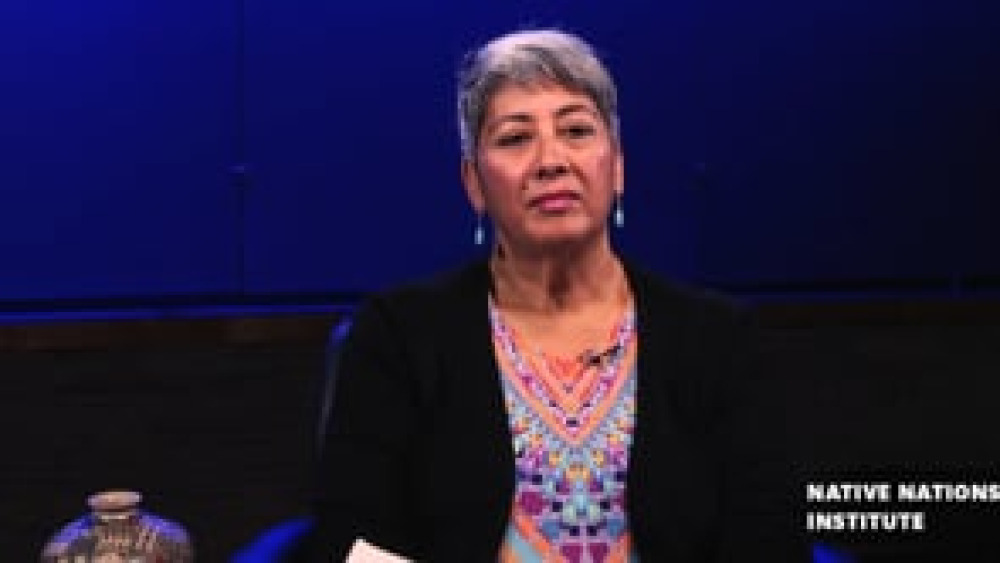
Sharon Toi: Honoring Maori Traditions and Governance
Sharon Toi is Ngāpuhi Māori and a 2014 recipient of a Fulbright Visiting Scholar-Ngā Pae o Te Māramatanga Graduate Award that funded her residency at the Indigenous Peoples Law and Policy Program housed within the University of Arizona’s College of Law. Sharon shares her extensive knowledge…
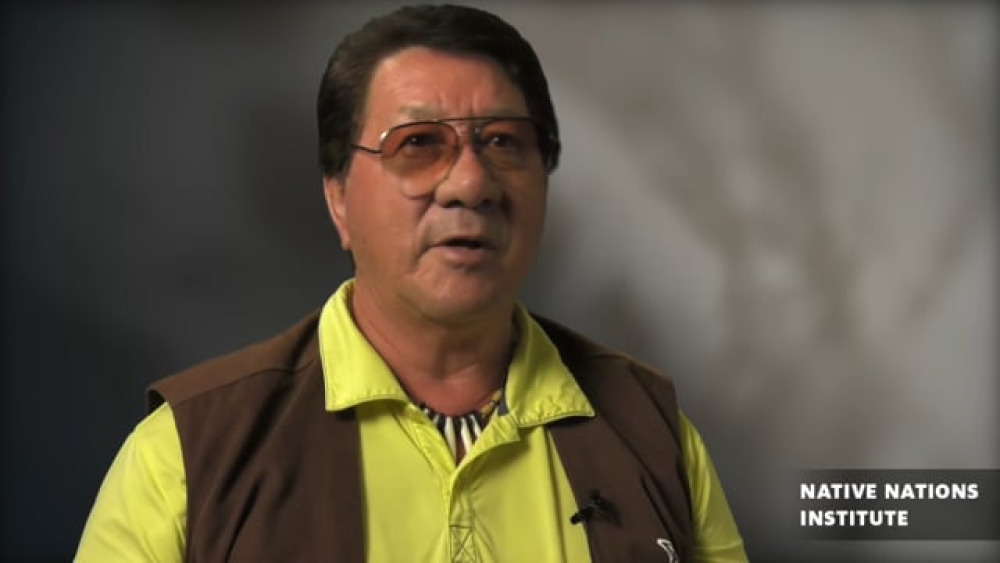
Michael Kanentakeron Mitchell: Stories and Reflections on Indigenous Governance
Former Grand Chief Michael Kanentakeron Mitchell of the Mohawk Council of Akwesasne recently stepped down from his role as Grand Chief after decades of building a strong independent jurisdiction. Chief Mitchell offers some of his stories and reflections in indigenous governance that…
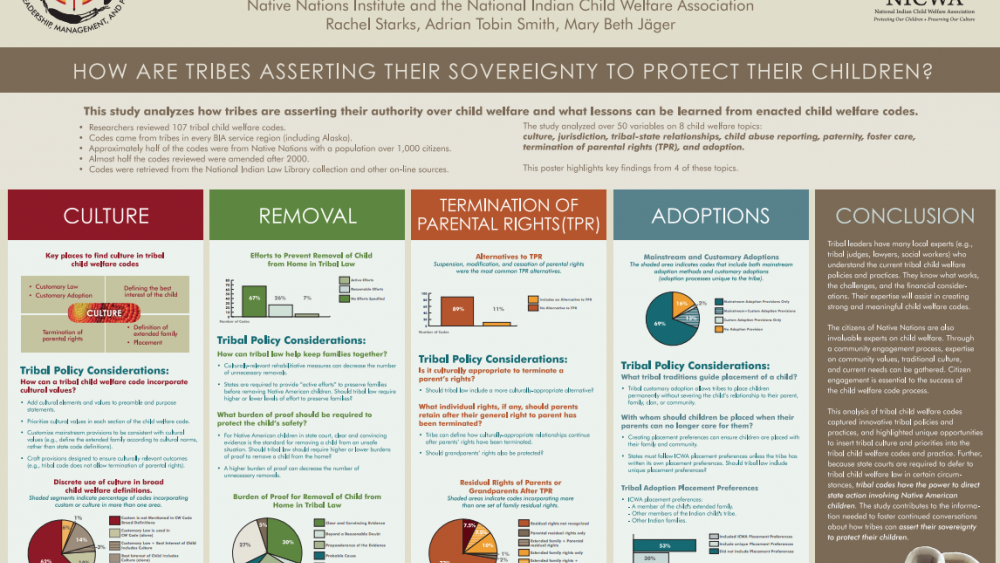
Protecting Our Children: A Review of 100+ Tribal Welfare Codes
NNI researchers Mary Beth Jäger (Citizen Potawatomi), Rachel Starks (Zuni/Navajo), and National Indian Child Welfare Association governmental affairs staff attorney, Adrian Smith shared the results of an ongoing study on culture, removal, termination of parental rights, and adoption in tribal child…
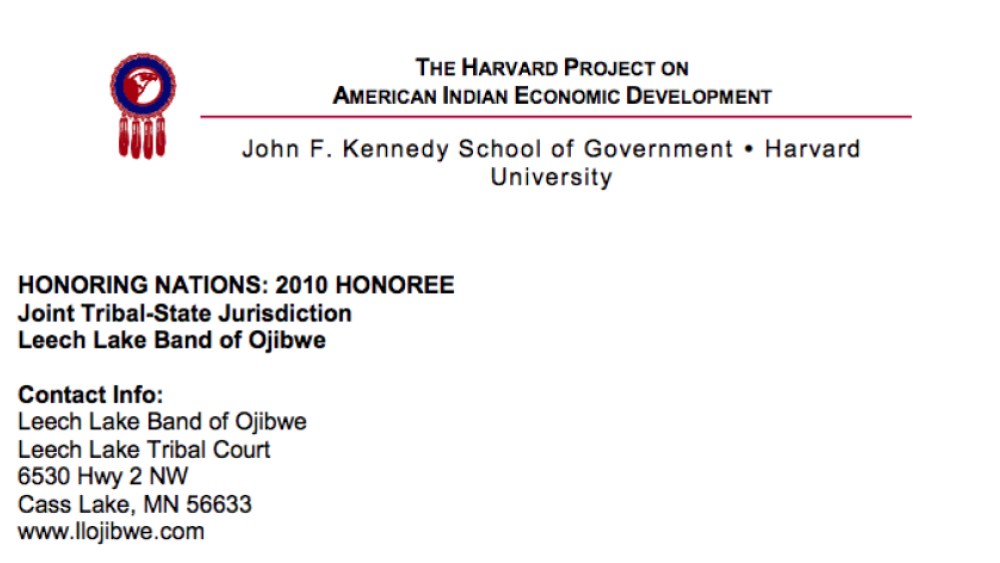
Leech Lake Joint Tribal-State Jurisdiction
Across Indian Country tribes are strengthening and better defining their governments in order to meet the unique needs of their communities. As Native nations work to expand their sovereign powers, tribal justice departments can play a critical role in achieving those goals. In the early 2000s, the…
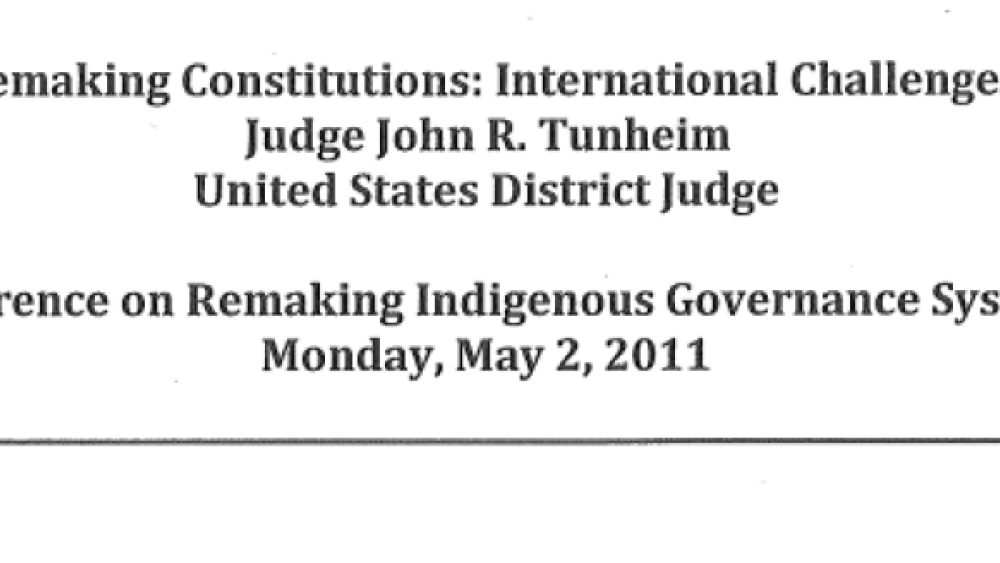
Remaking Constitutions: International Challenges
U.S. District Court Judge John R. Tunheim, whose work in Kosovo helped the United Nations re-establish and improve Kosovo's legal system and ultimately restructure its entire judiciary, discusses his observations as the principal outside advisor to the process that developed the Kosovo Constitution…
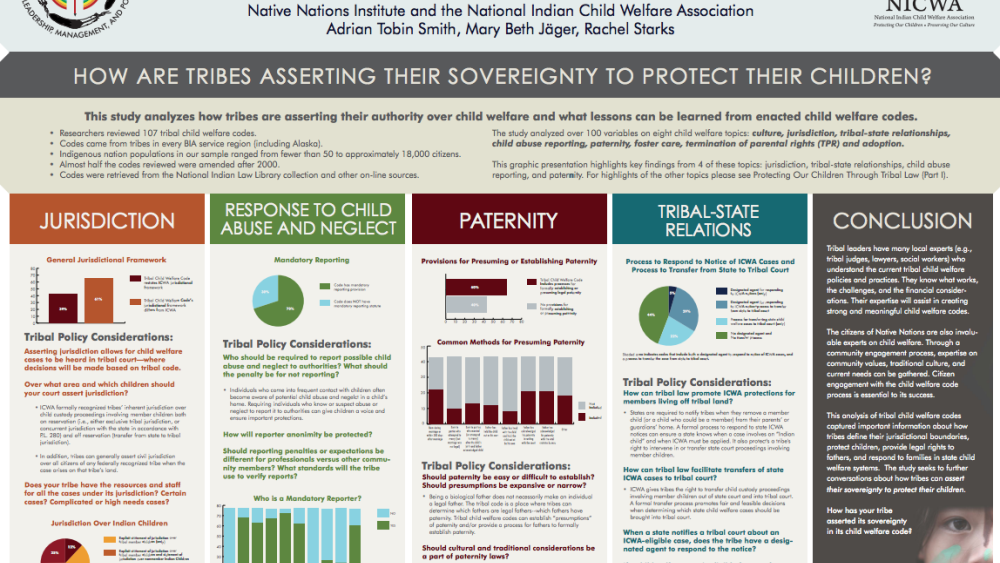
Protecting Our Children Through Tribal Law: Part II
This graphic presentation highlights key findings from 4 of these topics: jurisdiction, tribal-state relationships, child abuse reporting, and paternity. For highlights of the other topics please see Protecting Our Children Through Tribal Law (Part I).
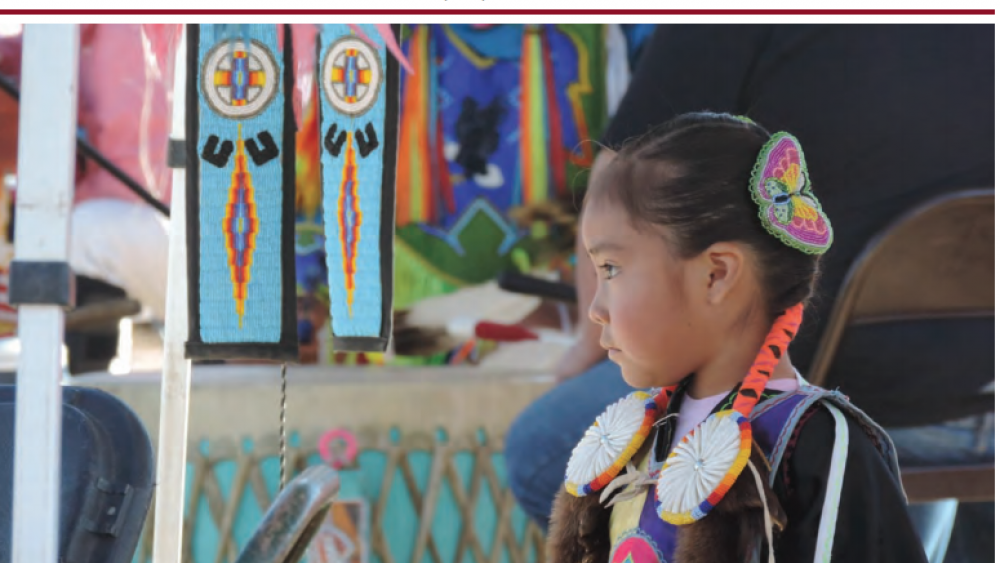
Tribal Child Welfare Codes as Sovereignty in Action. 2016 NICWA conference edition
With passage of the Indian Child Welfare Act of 1978 (ICWA), Congress formally recognized Native nations’ inherent authority to govern child welfare matters and provided support for tribal self-determination over child welfare. Because ICWA “assumes that a tribal code is the governance mechanism by…

Northern Cheyenne Constitutional Reform
The Northern Cheyenne Tribe is a sovereign nation. It is a federally-recognized Indian tribe with powers and authority to govern the activities of its members. The Tribe is governed by a Constitution and Bylaws first adopted on November 23, 1935. In the early 1990s, in order to meet the…
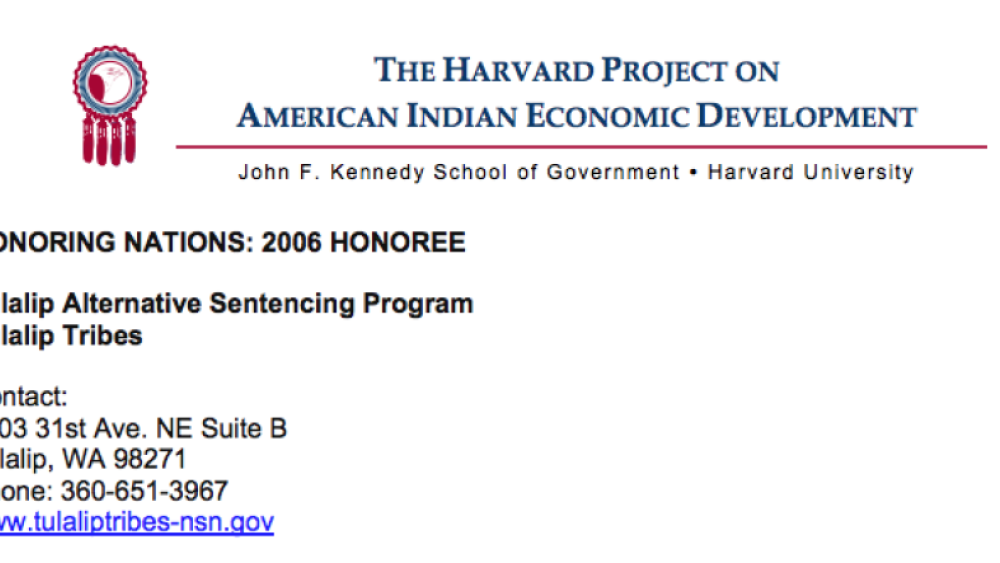
Tulalip Alternative Sentencing Program
Born out of a need to create a judicial system that Tulalip citizens can trust and that also helps offenders to recover rather than just "throwing them away," the Tulalip Tribal Court Alternative Sentencing Program supports efforts to establish a crime free community. Focusing on the mental,…
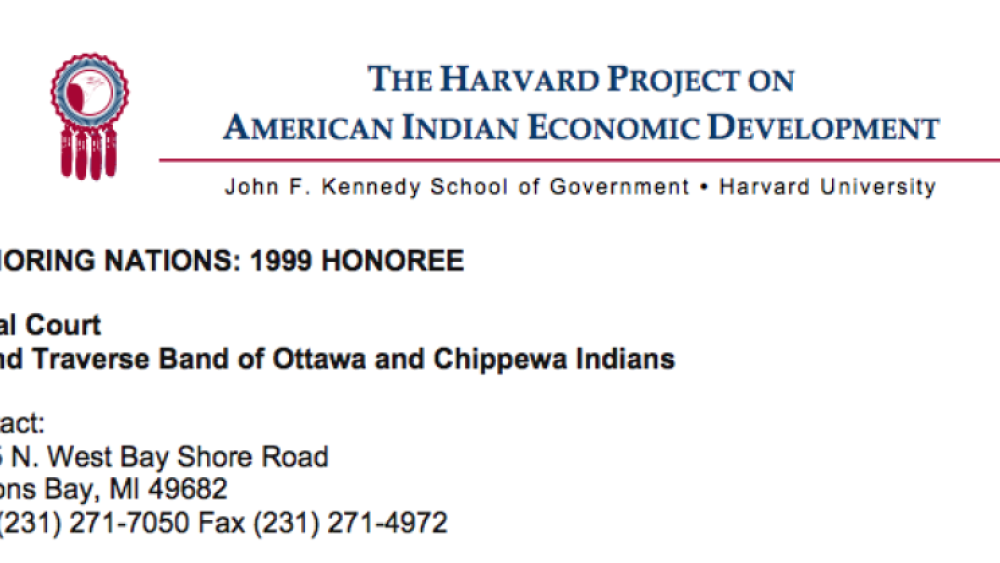
Grand Traverse Band Tribal Court
Constitutionally separated from the political influences of government, the Tribal Court hears more than 500 cases per year, and utilizes "peacemaking" to mediate in cases in which dispute resolution is preferred to an adversarial approach. The Court adjudicates on such issues as child abuse,…

Choctaw Tribal Court System
Self-determination is the guiding principle behind all of the government initiatives undertaken by the Mississippi Band of Choctaw Indians. This nation has created a vibrant economy while investing resources into the preservation of Choctaw language and culture. At the heart of its success is its…
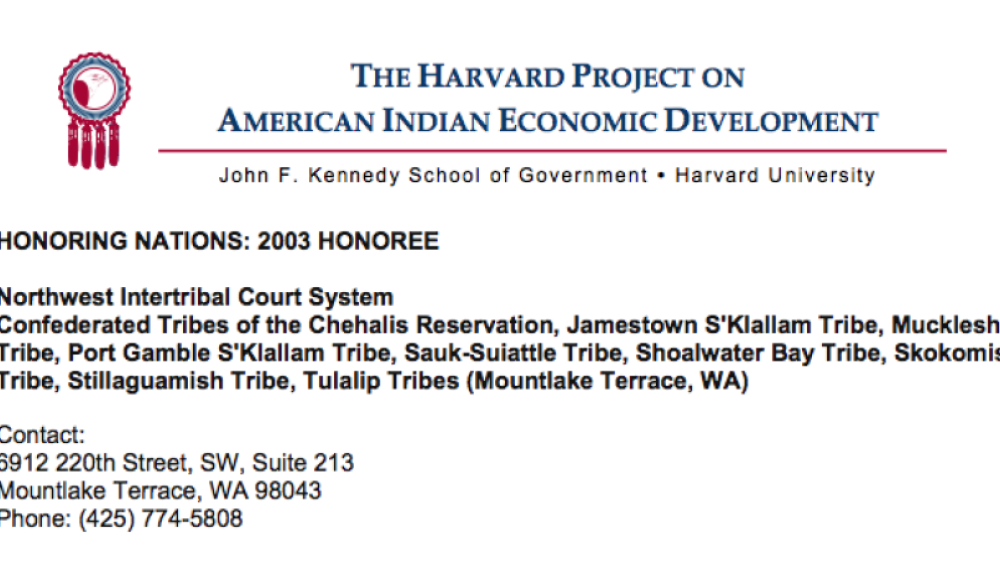
Northwest Intertribal Court System
The Northwest Intertribal Court System (NICS) assists tribes in developing tribal courts that provide fair, equitable, and uniform justice for all who fall within their jurisdiction. Owned by a consortium of tribes in Washington State, NICS recognizes the sovereignty, individual character, and…
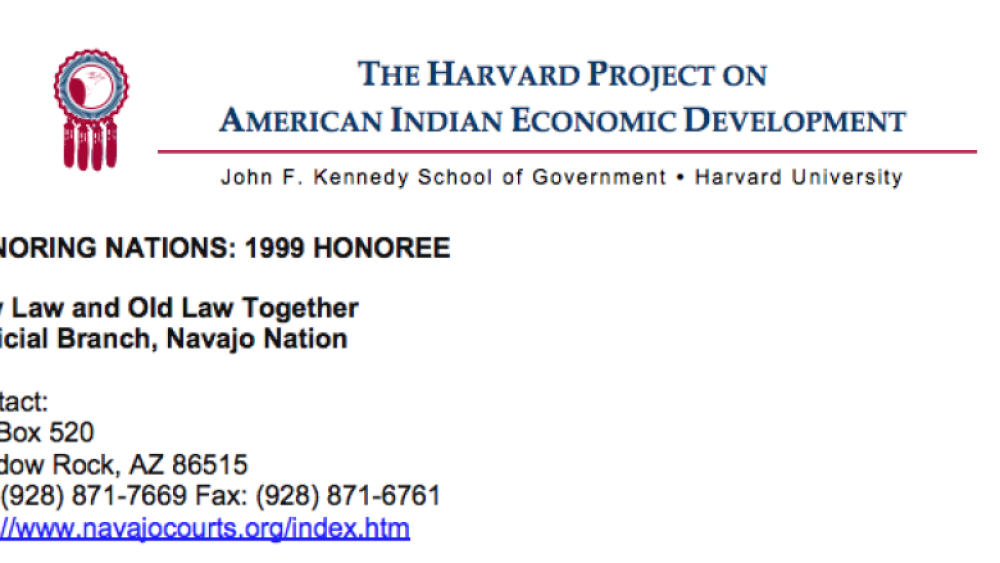
Navajo Nation Judicial Branch: New Law and Old Law Together
The Judicial Branch of the Navajo Nation seeks to revive and strengthen traditional common law while ensuring the efficacy of the Nation’s western-based court model adopted by the Nation. With over 250 Peacemakers among its seven court districts, the Judicial Branch utilizes traditional methods of…
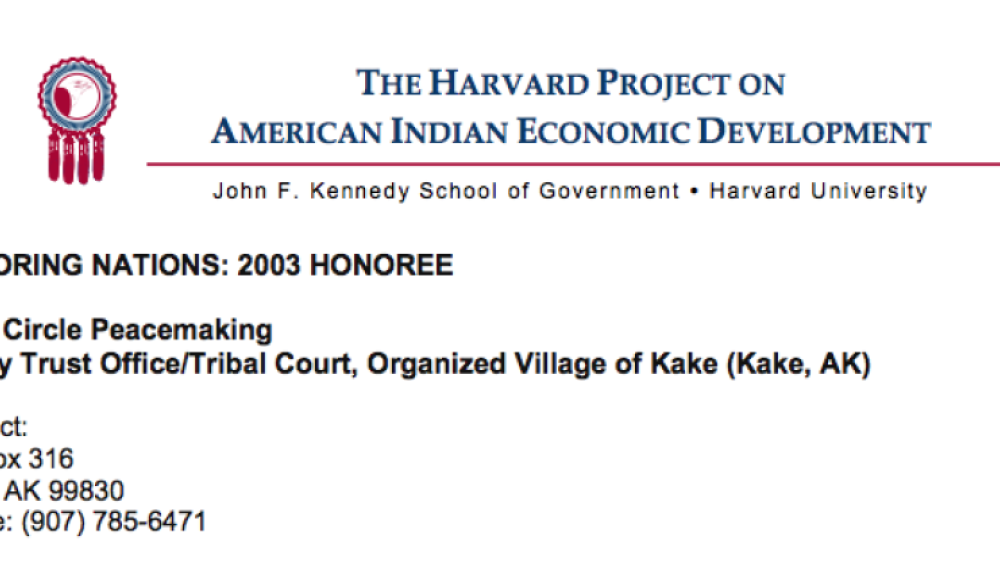
Kake Circle Peacemaking
Restoring its traditional method of dispute resolution, the Organized Village of Kake adopted Circle Peacemaking as its tribal court in 1999. Circle Peacemaking brings together victims, wrongdoers, families, religious leaders, and social service providers in a forum that restores relationships and…
